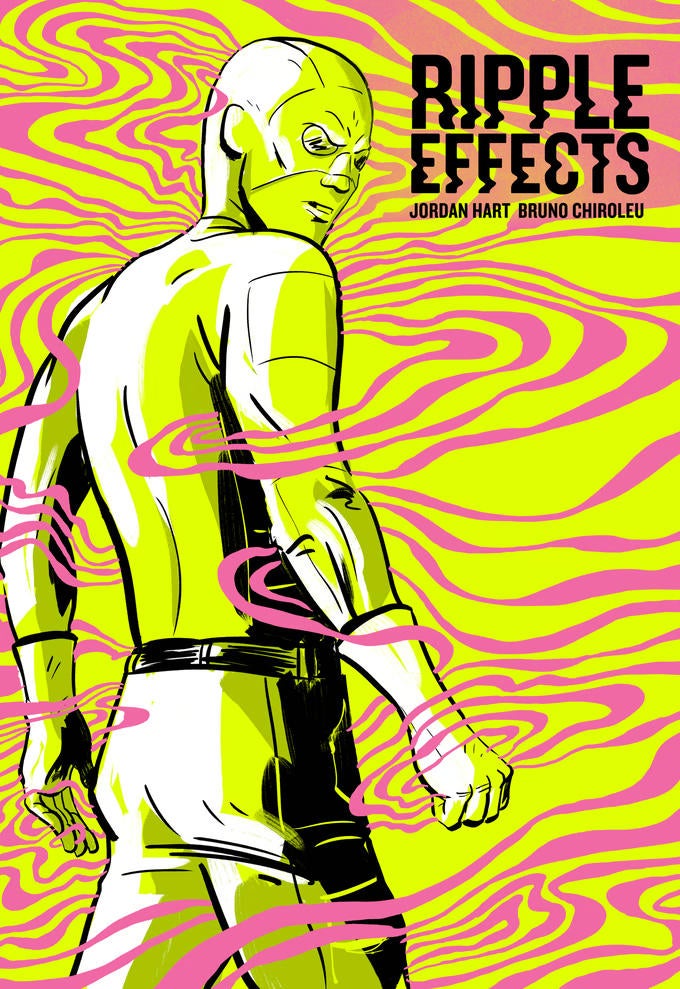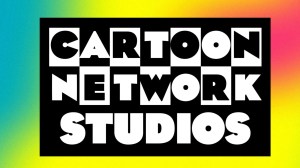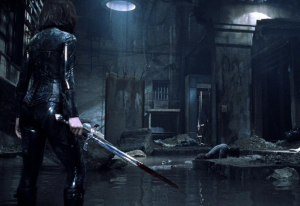After 15 years in operation, Fanbase Press’ first-ever Kickstarter campaign, for a new comic called Ripple Effects, is now live, and ComicBook has an exclusive first look at the book’s foreword, from Star Trek: Picard‘s Todd Stashwick, which appears in the Deluxe Edition of the book, now on Kickstarter. Ripple Effects centers on a superhero whose invincibility is offset by an acute case of type 1 diabetes that must be monitored and treated daily.
Videos by ComicBook.com
Ripple Effects was created, written, and colored by Jordan Hart (Image Comics / Syzygy Publishing’s The Cabinet, Terminarch, Doppelgänger), illustrated by Bruno Chiroleu (El Borde, Mara and Samu), flatted by Shane Kadlecik, lettered by Oceano Ransford (The Sequels, Haphaven), and features cover art by Justin C. Harder (CLAUS Studios) and a foreword by Matthew Noe (librarian, Harvard Medical School).

“Ripple Effects was created to remind those with invisible disabilities, and their loved ones, that they are not alone, that they’re unique, and that they’re special,” series creator Jordan Hart said in a statement on the campaign page.
Here’s the foreword:
I would do cartwheels during Sunday school. My report cards consistently stated, “Todd is disruptive to the other students. He is too talkative.” In eight grade, I was failing four classes at midterm. I would forget to hand in assignments, do the reading, focus. I spent a lot of my time in imagined worlds. Drawing instead of listening. Mom just called me her “Peter Pan.” So, onward I went, high school…I got a D in Drama for not handing in homework. In Drama. I know. The irony is not lost on me. I pushed ahead. Second star to the right, and straight on ’til morning. College bound with dreams of being a professional actor. Took me three different schools to finally graduate. Three. Different. Schools. Oh, the pattern.
I chose a career that allowed the constant shifting of focus, very physical, varied tasks, and REALLY social. I had no problem memorizing. Hell, I could recite the lessons from Sunday school despite doing cartwheels, and, in hindsight, maybe because of them. Keep changing the channel on what was asked of me and I soared. Focus (There’s that word again.) on one topic or, god forbid, make me sit still? Forget about it. I would not have functioned well in an office, behind a desk, hours at a time. I got the necessary reading of scripts done, plays, what have you. I adored comic books, words and pictures pulling around the page. Video games? Hyperfocus!
I built my world around how my brain met with it. My dreams suited my profession, and I can proudly say I flourished. Now, during the last 20+ years, if you asked my wife if I lost things often? Walked away from lit oven burners? Forgot to lock doors? Close the fridge? Forgot what she said seconds after she said it? Unable to focus on reading (other than scripts) for more than five minutes at a time? And so on and so on… She would resoundingly concur. I mean, that’s how most people live, right? Right?!?
Cut to mid 2020. The world was in the thrall of lock down. This was unprecedented. Like so many businesses, the television and film industries came to an abrupt halt. There was no work, like the work that I normally did. That I excelled at. That fit my brain. Incoming digression… in 2007, during the writers’ strike, which also stopped my work, I realized I needed to diversify my revenue streams. Many mouths under my roof to feed. So, I launched a second career as a writer. Which would seem counterintuitive because TV and film writers weren’t working either, so, instead, I started with a self-published comic book. It became a key to a lock and opened up new opportunities for me. The strike ended and now I had two careers which have continued to this day. Acting and writing alongside each other. Screenplays, video games, D&D material. A lovely second income. But like I said, I digress. A lot. I’m REALLY good at it. Anyway. FOCUS, Todd! Lockdown. Right. No acting work for an indeterminate amount of time. Now, all my writing work switched to Zoom (which normally would involve me pacing in front of a whiteboard with a partner in a room). I was grateful beyond words. I was employed when many weren’t. However, now, I had to sit still at a desk, face forward, and somehow be clear and creative and stay on topic…for hours. This was a sport I’d never trained for. I was not built for. This was torture. I am in awe of those who excel at this. So, this brings us to that acronym we see plastered all over social media. I’m talking about ADHD. Attention Deficit Hyperactive Disorder. I began to see posts and TikToks everywhere. On top of the pandemic, this seemed like a co-epidemic. As I watched and internalized how folks were describing their symptoms… it was like looking in a mirror. I then had to wade through all my self-denial. “It’s just the fog brain of the pandemic.” “Everyone gets distracted.” “We all have a lot on our minds these days.” “I’m not unique in this.” “I’m fine.” But there was another mirror looking right at me, in the form of my grown son. I was seeing all the same behaviors manifesting in him. In fact, they had been with him since he was a boy, just like me. I was seeing his struggle. My wife and I wanted to help him. It was time to at least talk to far smarter professional people than the self-diagnosis many of us do from social media and the internet.
We made an appointment for him to see these far smarter professional people at UCLA. My far smarter wife than I also snuck in an appointment for me. Or should I say we got on a waiting list for analysis screenings for ADHD. A few months later, they called and set us up.
The screening for me consisted of three separate questionnaires, one to be filled out by my mother, one by my wife, and one myself. This is to gauge what issues may have begun in my youth and continued into adulthood. Then, I met with the psychologist. She took an aggregate of the answers from the questionnaires, interviewed me extensively, then took me through a thorough cognitive processing test. It was a long and fascinating process. She then gave me a score. As a surprise to no one, I scored high on both inattentiveness and impulsivity (a.k.a. a bullseye for ADHD). I now had a name for why I was turning cartwheels in Sunday school, can’t sit still or climb that mountain called focus. This was beyond Peter Pan. The short version: My brain doesn’t produce dopamine, epinephrine, norepinephrine, and serotonin the way many others do. These are necessary for healthy brains and focus. So, I seek distraction, activity to overcompensate. This needed outside help. Therapy and therapeutics. For the first time in my fifty plus years, I was understanding my brain and how to not be ruled by it.
It’s an ongoing process, for both me and my son. He has his own path. He scored high, as well, just like his old man. Do I wish I was his age or younger when I was diagnosed? I don’t know. Maybe? I built amazing coping skills and work arounds and did not come up in an age of smartphones, the internet, and the carnival of distractions at our fingertips. Smartphones are like crack to someone with ADHD. So, my experience growing up with it and all its struggles is different from my son’s. I am who I am. Now is when I’m dealing with it. So, here we are. Better late and all that.
The other thing that popped up during the last few years was I developed type 2 diabetes which could be its own foreword in itself. It is genetically rampant in my family and now it’s part of me. It definitely contributed to the fog brain, lethargy, and lack of focus. I’m getting that under control, as well, with medicine and diet.
We all may find that we have something we wrestle with. A shadow that others cannot see. This comic you hold explores that truth. People have to move through this world, find their purpose, and also live with a silent illness. We need to be kind to ourselves and seek help, be compassionate, because you never know what someone else is carrying, and be brave knowing that these issues don’t define you, they are just part of who you are.
As things get back to “normal” after the height of the pandemic, I realize that my “normal” is different. It always has been, I just didn’t know it. I found ways to quiet my brain without losing my spark, drive, and creativity.
Like Peter Pan, I’ve learned how to dance with my shadow.








